Grand Duke Lithuanian Keystut
Thanks to the feats of arms, nobility and marriage with Biruta, Keistut is one of the main and favorite heroes of the entire Lithuanian people. And even German historians admired him, speaking of him as a real knight. By the way, Keistuta can be seen on the monument “The Millennium of Russia” in Veliky Novgorod. The Grand Duke is depicted on the lower tier (frieze) in the section “Military People and Heroes” (north-eastern side).
Sons of Gediminas
When Keistut was born, it is not exactly known. It is believed that approximately in 1297 year. His father was the Grand Duke of Lithuania Gedimin (his image, by the way, is also on the monument "The Millennium of Russia" on the lower tier in the section "State People"). Since Keistut had several brothers, he received from his father a narrow and long strip of territory adjacent to the lands of the Teutons and Mazovia. Under the rule of Keistut, they were: Samogitia, Troki, Grodno and Berestye. With such a “startup”, Keystut entered the global arena.
If Gedymin had enough strength and authority to keep power in the principality only in his hands, then after his death the situation in the state changed dramatically. The system that worked under the prince simply collapsed because of the large number of applicants for the throne. During the first years of centralized power there did not smell, because the heirs of the Grand Duke could not agree and turned their land into independent inheritances. Although formally the grand duke in the state was, and its capital was the city of Vilna (the grand duke's inheritance). Here he sat on the throne of Evnuty, the youngest son of Gediminas. But none of the brothers considered him, preferring to remain independent with an independent political course (which is internal, that external). It happened that the brothers entered into short-term alliances beneficial to each other. But more often they still preferred to do without the intervention of relatives. This applied to interactions with neighboring states. Even the military campaigns no one agreed with Euntie. In general, the Grand Duchy of Lithuania was fragmented with very vague prospects.
Keistut understood that, individually, they were all tidbits for numerous opponents. Therefore, he tried to keep the course, if not to unite, but at least on allied relations with relatives. Therefore, when Monwid (another one of the brothers) got involved in a confrontation with the knights, he supported him. But not by living force, but diplomatically. After several victories (the Germans were not only driven out of Zhmudi, but also suffered a series of defeats on their territory) Monvid sat down at the negotiating table with Master Ludolf Koenig von Wanzau (the twentieth grand master of the order). And in this he was supported by Keystut and Olgerd (another brother). In general, diplomacy was one of Keystut's strongest sides. He managed to negotiate with the Poles that they release another of his brothers, Lyubort, and also managed to conclude a trade agreement with England. But Kestut did not forget about the war either. He periodically formed a company to his relatives during the raids on Mazovia, took part in the defense of Pskov against the Livonian knights (together with Olgerd).
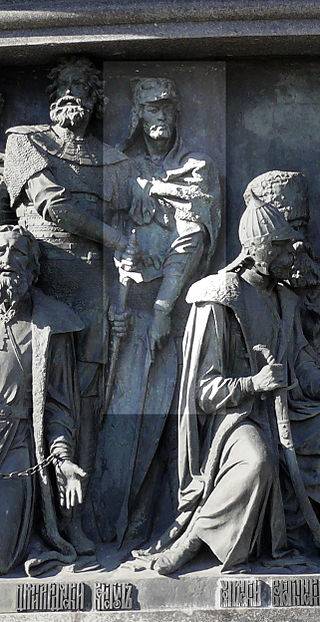
As the situation with the onslaught of the knights became more and more dangerous, the Lithuanian princes were faced with a choice: either to unite efforts to fight, or to become their victims one by one. True, not all the sons of Gediminas were able to pacify their ambitions and agree with the others. Above the Lithuanian state there was a threat of rapid absorption by the German knights. But this did not happen, because the two most intelligent and influential sons of Gediminas, Olgerd and Keystut, understood that unity was necessary for victory. And they began to act. In 1345, Keistut occupied Vilna, which belonged to Eunutia. The younger brother could not prevent this, and the population of the city met the new government loyally. Having achieved success, Keystut gave the capital Olgerdu, that is, inviting him to a great reign. The brothers clearly distributed their responsibilities. Olgerd took over the eastern frontier. He developed relations with Russia and tried to gather under his power fragmented Russian principalities. Keistut also “plowed” in the west, defending the interests of Lithuania and the Sneak. The Crusaders walked in his opponents - the enemies were cunning and ruthless, but He knew and knew how to open German "cans". The diarchy that prevailed in Lithuania was at that time ideal for the state (Vitovt and Yagailo later adopted the same policy of dual rule).
Lithuania regained its strength. And in the 1350 year after successful hostilities, she managed to regain the lost Brest and Volyn. And for a short time even captured Lviv. But the sticks in the wheels suddenly decided to insert the Polish-Hungarian troops. They attacked Brest, Vladimir-Volynsky and Belz. Keistut, of course, was on the front line. He was well aware that he did not have enough strength to withstand a powerful and well-equipped opponent. Therefore, I went to a diplomatic trick. He alone went to the camp of Hungarian soldiers, located near the town of Melnik. Here Keistut met with the King of Hungary Louis. Naturally, when he saw the Lithuanian prince, he was very surprised. But he did not kill him; instead of bloodshed, he invited him to the negotiating table. Keystut told Louis that he would definitely accept the Christian faith if he would withdraw the troops. The Hungarian king, knowing full well about his opponent’s eloquence, questioned the sincerity of the words of the Lithuanian prince. And then Keistut took an oath according to the custom of the pagans. The prince chopped off the ox's head, and then washed his face and hands with his blood. To swear according to the pagan rite that he would accept Christianity - only Keistut could go for it. Louis appreciated the deed of his Lithuanian "colleague". They made peace, and the Hungarian king invited Keistut to come over for baptism. The prince agreed. But at the first opportunity he ran away and remained faithful to his ancestors. Most likely, Louis realized that this was the end of their voyage. Therefore, it did not come as a surprise to him.
But not always Keistut managed to get away from the water. In 1360, he was taken prisoner during a regular battle with the Crusaders. They did not kill him, the Germans knew that the enemy could be profitably exchanged. Therefore, Keistut had no choice but to just sit and wait. Some time after the liberation, the Lithuanian prince again fell into the steel gloves of the Teutonic knights. As a particularly valuable prisoner, he was sent to prison at Marienburg Castle. According to legend, Keystut offered the knight, who defeated him and money, and power, but he refused the "bribe". In prison, the Lithuanian prince did not stay long. It turned out (again, according to the legend) that one of his guards was a representative of the Lithuanian tribes who had gone over to the side of the knights. It is not known what and how exactly Keistut managed to convince the “prodigal son” to reconsider his views on life, but he agreed to help the prisoner. Soon the Lithuanian prince was released and managed to get to Mazovia.
Struggle for power
The co-rule of Olgerd and Keystut ended in 1377. Olgerd died, and he chose Jagiello, his son from his second marriage with Juliana Tverskaya, as his successor. Naturally, the son of his first marriage, Andrei Polotsky, decided to challenge the decision of his late father. But he did not find support, as Keystut and his son Vitovt supported Jagiello.
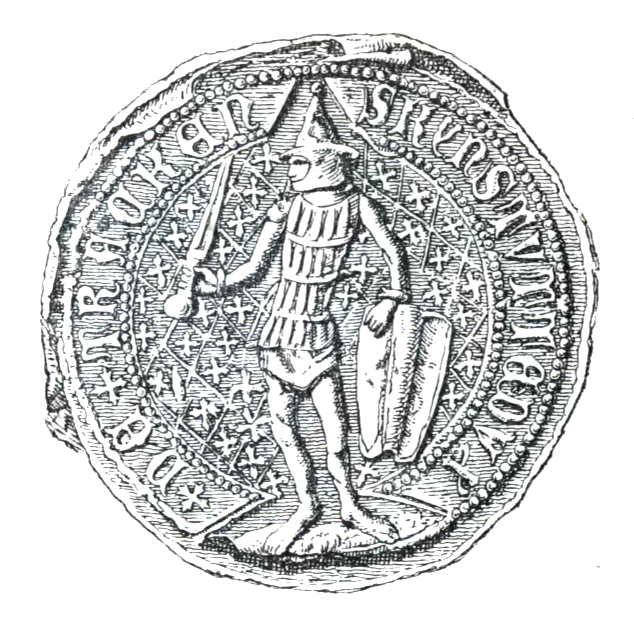
The winter of 1378 of the year began for Lithuania with the next invasion of the Crusaders. And at first success was on the side of the Livonians. They managed to reach Berestya and discovered their way to Vilna. The situation demanded an urgent settlement. Another Gediminovich decided to take on the role of the first violin, Skirgalo, who was Jagiello's sibling. He met with the Master of the Livonian Order, discussed the situation of the current military conflict, the possible ways of the Christianization of the pagan population of the Lithuanian lands, and at the same time asked to stop helping the fight for the throne, Andrei Polotsky. What exactly success Skirgalo has achieved is unknown for sure. By the way, there is a version that from the Livonians, he went to an audience with the emperor of the Holy Roman Empire. If this voyage did take place, then reliable information about it was not preserved. True, many historians believe that Skirgalo’s trip to European “partners” is the first intrigue of young Olgerdovichs behind Keistut. The old prince himself did not know anything about it, so he went his own way. At the end of September 1379, Keistut was able to negotiate with the knights to end the war. And in Troka a peace agreement was signed. And in that procedure was present and Jagiello. In fact, it was the last contract, which was signed jointly by Keystut and Jagiello. After that, their, let's say, political paths diverged. It is curious that almost immediately after the contract, Jagiello began to weave his own intrigue web. Moreover, he held negotiations with representatives of the Crusaders on his territory - in Vilna. As a result, they concluded an agreement under which the Germans pledged not to touch the southern and eastern lands of the Grand Duchy, since they were Christian. But the security of the rest of the (pagan) territory the Germans could not guarantee. That is, Jagiello, in fact, defended his ancestral lands, substituting the land of Keistut and other relatives.
Then Olgerd's son committed another very controversial act. If Keystut did not know about the treaty with the crusaders, news that his widowed niece, Maria, was married to adviser Yagailo Voydilo, could not get past him. And Keistut, as they say, exploded. The fact is that Vodilo was a commoner. Once he worked as a baker, and then successfully "flowed into the stream." It is not known what and how Vodilo managed to impress first Olgerd, and then Jagiello, but the latter, along with his niece, handed him to the board and the city of Lida. Keistut in every way demonstrated his dismissive attitude towards the “serf”, however, this did not work on Jagiello. Therefore, when the old prince found out about his marriage, he was greatly offended, considering that Olgerd’s son decided to challenge him with this act.
While Keistut was busy with pressing affairs in his lands and in every way he lamented the power that fell on Vodilo’s head, Yagailo started another tricky deal with the crusaders. Not having informed the old prince, he first took Polotsk by force from his brother Andrew, who constantly, if I may say so, got confused under his feet. Then Jagiello concluded another truce with the Livonian Order (February 1380), and then began to seek a meeting with the great Master of the Teutonic Order, Winrich von Kniprode. The audience with the head of the Crusaders ’head office took place at the end of May of the same year. Jagiello and von Kniprode concluded a secret Dovidishkovsky treaty. The details of this agreement are not known for certain. The remaining information says that Jagiello, as usual, protected himself and his lands from foreign invasion. At the same time, the non-aggression treaty did not apply in the Keystut area. That is, von Knippe could fight with him. Such a nuance is curious: if the old prince, if necessary, turned to Jagiello for help, he could not refuse, in order to avoid suspicion of collusion with the Germans. In general, the son Olgerd spun as he could in the pan of the political arena. There is a version that Jagiello perfectly understood the complexity of the situation at the borders of his country. Europe was actively developing, and no one would have thought to doubt the power of the Christian faith. And therefore, every year it is becoming more and more difficult for the pagans to defend their usual way of life. The Grand Duchy of Lithuania also required changes. In the form in which it went to Jagiello to preserve sovereignty was not real. For all his valor, Keistut, in the eyes of the young prince, looked like an archaic bogatyr who did not want (or could not) change along with the whole of Europe. Therefore, Jagiello and weaved networks of intrigue, trying not to leave the old prince, stuck in the past.
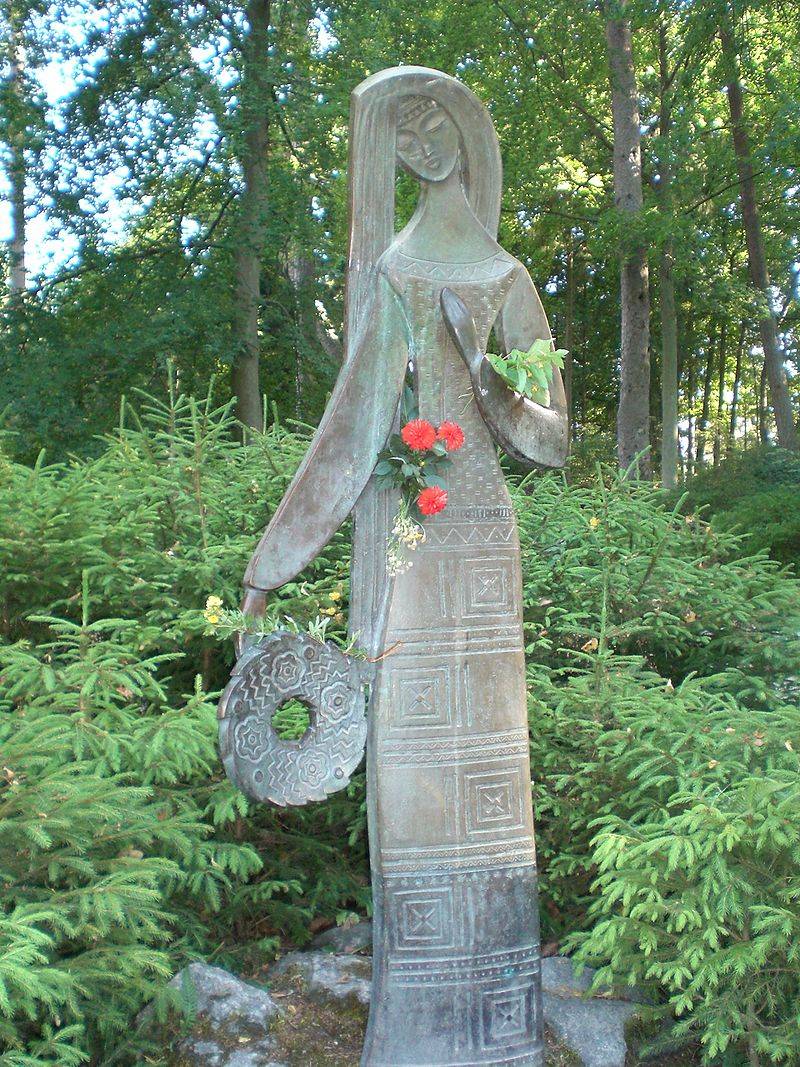
In the new 1381, the German knights appeared on the territory of the old prince. They confidently advanced to Troki using bombers. Despite active resistance, the Lithuanians retreated. Particularly affected by the invasion inhabitants Zhemantii. The interesting thing is this: while the war was going on with Keistut, Günther Goenstein, a commander of Osterode, met. The knight told the prince about intrigues behind his back: “You don’t know that Prince Great Yagailo often sends us Logies, and already conspired with us how to bring you down from your reigns.” There are two versions why the commander decided to tell Keistut about it. The first is that the knights, of course, benefited from a full-fledged civil war in the Grand Duchy. Because they would certainly be able to take advantage of civil strife with the maximum benefit for themselves. The second version is more, let's say, humane. Since Goenstein and Keystut were friends (German was the godfather of Danuta, daughter of the old prince), the German decided to do a favor and warn him. Naturally, Keistut hesitated. On the one hand, he did not want to believe in the betrayal of his nephew, on the other - to ignore the words of the commander, too, was impossible. Therefore, the prince told about everything to his son Vitovt. However, he took the side of Jagiello and said: “I don’t believe that, I don’t think it was so, because he lives in friendship with me, and would have told me.”
Jagiello, meanwhile, helped his main ally Skirgalo in suppressing the uprising in Polotsk. And the Crusaders took direct part in this matter. This angered Keystuta and he told Vitovt about dissatisfaction with Jagiello’s policy: “He had inflicted great damage on me before, gave my niece, and my sister for being a slave, I know well that now he has colluded with the Germans against us; and the third: we are at war with the Germans for the third time, and he with them Polotsk extracts, which belongs to my son, and to your brother, Andrey Gorbaty. This is the second sign of his dislike for us. This already clearly shows that they, together with the Germans, have become against us. ” But Vitovt remained unconvinced. He did not want to believe that Jagiello is capable of betrayal.
Since the support of his son failed to enlist, Keistut decided to act independently. And while Jagiello suppressed the rebellion in Polotsk, he struck. And at first the old prince went to the trick. He led the troops to Prussia, but then abruptly turned them on Vilna. Vitovt was against the conflict with Jagiello, so he did not take part in that maneuver. Vilna, who did not wait for the war, was defenseless before the army of the old prince. And the city was in his hands, as well, by the way, as was Yagailo himself, who was captured. In Vilna, Keystut also found confirmation of the words of the commander (and his suspicions) in the form of a Dovidishkovsky agreement. Soon Vitovt arrived in the city. Despite the evidence of the betrayal of Jagiello, it was he who contributed to the fact that the old prince did not execute his nephew. In general, for the intrigue Jagiello managed to get rid, by and large, only a slight fright. The only thing that Jagiello had to really pay off was because of his own power. Keistut demanded from him to declare himself in writing to be the Grand Duke of Lithuania. Since the prisoner had no choice, he did it.
Soon Jagiello was released. The noble and generous prince (it is clear that under the influence of Vitovt) gave his nephew Krevo and Vitebsk, that is, his original location. Left alone, the authority of Keystut recognized Skirgalo, after which he lifted the siege from Polotsk. And Andrew returned to his patrimony. True, he previously acknowledged the power of the old prince. All other relatives followed the same example. Having established himself on the Lithuanian throne, Keystut established relations with the Moscow principality, making territorial concessions.
Having secured himself, the grand duke took up the crusaders. Having performed several successful operations, the Lithuanians reached the shores of Alla and Pregel. The Germans, of course, attempted to strike back by ravaging the lands of Keystut. But their onslaught was repelled by the troops of Vitovt. And if the situation in the external arena developed for the Grand Duke successfully, then on the inside there was a serious crisis. The overwhelming majority of Keystut's relatives, although he recognized him as Grand Prince, were displeased with the situation in the country. Each of them wanted a “special” relationship. The first to "the path of war" came Prince Koribut, who was sitting in Novgorod-Seversky. Vodilo, who was at the origins of the rebellion, planned to turn everything up with the maximum benefit for himself and further strengthen his influence on the grand throne. But the plans were not destined to come true. He was captured and soon executed. This, in fact, Keystut's success and ended. At first, his army was defeated by the army of Coribut, and then a new insurrection broke out already in Vilna. The uprising was led by a local merchant Ganul, who managed to unite not only the supporters of Jagiello, but also initially neutral traders. The fact is that Keystut introduced a number of serious restrictions on trade with the Germans, which caused anger in the vast German community of the city. True, there is a version that the rebellion was planned and organized directly by Jagiello himself, and Ganul, like the community, became only a tool in his hands. Since Keistu's positions remained weak in Vilna, the insurgents quickly managed to capture him and killed the entire garrison. Vitovt tried to intervene in the case, but his attempt ended in failure. He was defeated under Vilna and returned to Troki. And Jagiello freely occupied the capital. Soon, the Teutonic Crusaders, commanded by Marshal Konrad Gattenstein, came to the aid of the young prince. They headed towards Troki from the north, and Yagailo (along with Skirgalo) advanced to the main city of Keistut from Vilna. Vitovt understood that he alone could not cope with such formidable opponents. Therefore, together with his mother left the city. And soon the Troki were taken, and Jagiello gave the town of Skirgalo. After this, the Crusaders, having reached the goal, returned home.
Keystut arrived in Grodno, where he met with Vitovt. First of all, he sent his wife to Beresten, and then began to think through a plan of action. There was only one way out for him - to go to Zhemantiya and recruit a new army there. And assistance to the military campaign was to be provided to him by Vitovt with the army from Grodno and the only ally Lyubart from Volyn. The pagans were not eager to get involved in an internecine war and take sides. But Keistut put pressure on the most painful point of the Samogitians - their faith. He predicted their Christianization in the event of the victory of Jagiello.
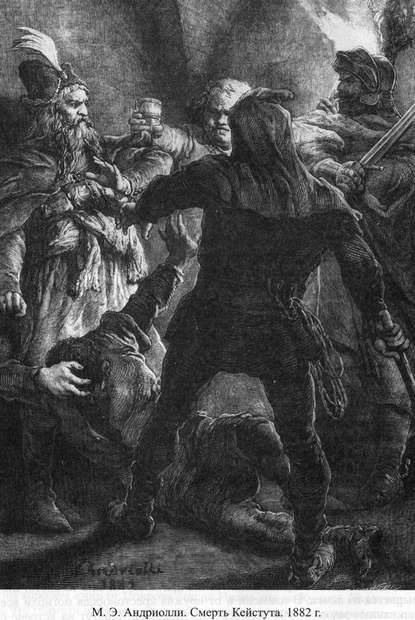
In early August, 1381, the army met at Troc. Despite Keystut’s best efforts, he was unable to gather an army equivalent to the forces of Jagiello and his allies. Therefore, the outcome of the battle was known to everyone in advance (first of all because of the Samogitians, who, although they stood under the banner of Keystut, were not going to die for it). It did not come to a full-fledged battle. Skirgalo arrived at the camp to the old prince. First, he met with Vitovt and convinced him to begin negotiations, they say, why waste blood, if everything can be settled through diplomacy. And he agreed to influence his father. After listening to them, Keystut made, in fact, the only wrong decision in his life - to start negotiations with Yagailo in his nephew's camp. At the same time, Skirgalo on behalf of Jagiello gave the old prince security guarantees. But of course there were no negotiations. As soon as Keistut and Vitovt appeared in the camp of the enemy, they were captured. A few days later, the old prince died. According to the official version, which was promoted by Jagiello, Keystut himself committed suicide. But few people believed this legend. The entire princely elite of Lithuania was convinced that Keystut's blood was in Jagiello’s arms.
The old prince was buried in Vilna, and according to the pagan rite. Together with the body of Keistut, his horses, cannon and jewels were burned on the funeral pyre. This is how one of the most powerful and influential Lithuanian princes passed away. About which even his opponents responded well. For example, in the chronicles of the Teutonic Order, the following record was preserved: “Keistut was a warlike and truthful husband. When he conceived of a foray into Prussia, he always informed the Marshal of the Order beforehand about it and was sure to come later. If he made peace with the master, then he kept it tight. If he considered any of the brethren our man to be brave and courageous, then he would give him a lot of love and honor. ” But what the Pole Jan Dlugosh wrote: “Keistut, although a pagan, was a valiant husband: among all the sons of Gedimin, he was distinguished by prudence and resourcefulness, and, most of all, he was honored, he was educated, humane and truthful in words.”
Unlike his father, Vitovt managed to avoid a sad fate. He managed to escape. True, his mother, Birute, had to pay for this with his life. Wiegand of Marburg wrote that after the escape of Vitovt Biruta and her two brothers were killed. Keistut's son turned for help to Janusz Mazowiecki - Danuta's husband. But Janusz refused. Vitovt heard the same answer from Zemovit Plotsky. And then, being in a hopeless situation, he turned for help to the Teutonic Order.
After these events in the Grand Duchy of Lithuania, civil war began again. It lasted until the year 1389. And German knights took direct part in all those events. In the end, in the last civil war, Vitovt was stronger. An agreement was concluded between him and Jagiello on favorable terms for both. So Vitovt became the Grand Duke, and Jagiello - the supreme. Diarchy lasted until the year 1430, when Vitovt died.
***
Now - a few words about Birut. To avoid the side of his wife Kaystut impossible. The fact is that after death, she was worshiped as a goddess (an analogue of a Christian saint). It is not known exactly which tribe originated from Biruta. According to some data from Samogitians, on the other - from kurons. But it is known that she was a priestess (vaidelotka) and guardian of the sacred fire of the Lithuanian pagan gods.
According to legend, Biruta, as a worshiper, could not marry. However, Keystut had a different opinion. He kidnapped the girl, spitting on her vow of celibacy. They settled in Troki and played a magnificent wedding. And Vitovt was Keystuh’s fourth son.
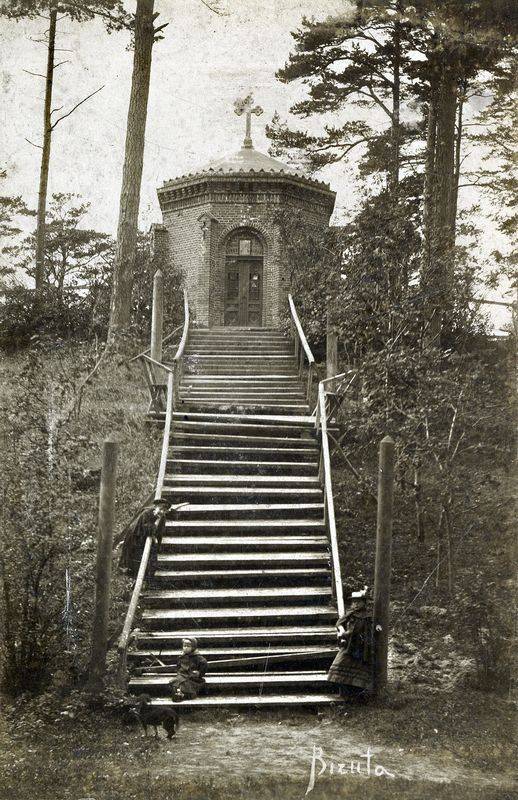
As mentioned above, after the flight of Vitovt, Jagiello won back on Birutė. True, there is a version that the woman did not die then, but returned to her sanctuary, where she lived for several more years, worshiping pagan gods. One way or another, after the death of Biruta among the pagans, her cult gained great strength. Interestingly, in 1989, on top of a hill in Palanga, named after Keistut’s wife, archaeologists discovered remains of a shrine dating from the fourteenth to fifteenth centuries. After the Christianization of Lithuania, the sanctuary of Biruta was destroyed, and the chapel of St. George appeared in its place. It, by the way, has been preserved to our days.
Information